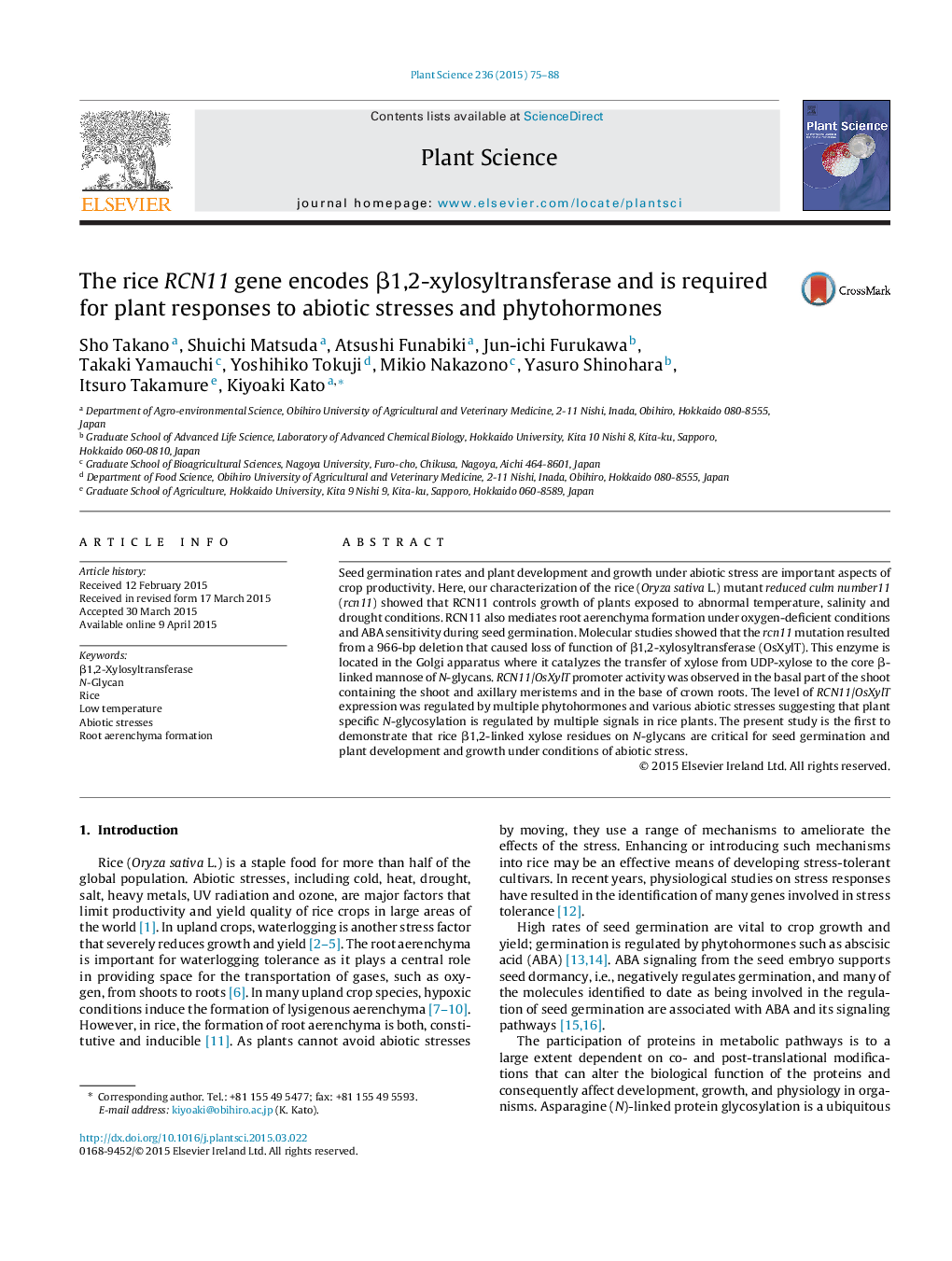| Article ID | Journal | Published Year | Pages | File Type |
|---|---|---|---|---|
| 2017022 | Plant Science | 2015 | 14 Pages |
•Rice REDUCED CULM NUMBER 11 encodes β1,2-xylosyltransferase.•RCN11 is involved in plant growth under low and high temperature conditions.•RCN11 mediates ABA sensitivity during seed germination.•RCN11 expression is regulated by multiple phytohormones.
Seed germination rates and plant development and growth under abiotic stress are important aspects of crop productivity. Here, our characterization of the rice (Oryza sativa L.) mutant reduced culm number11 (rcn11) showed that RCN11 controls growth of plants exposed to abnormal temperature, salinity and drought conditions. RCN11 also mediates root aerenchyma formation under oxygen-deficient conditions and ABA sensitivity during seed germination. Molecular studies showed that the rcn11 mutation resulted from a 966-bp deletion that caused loss of function of β1,2-xylosyltransferase (OsXylT). This enzyme is located in the Golgi apparatus where it catalyzes the transfer of xylose from UDP-xylose to the core β-linked mannose of N-glycans. RCN11/OsXylT promoter activity was observed in the basal part of the shoot containing the shoot and axillary meristems and in the base of crown roots. The level of RCN11/OsXylT expression was regulated by multiple phytohormones and various abiotic stresses suggesting that plant specific N-glycosylation is regulated by multiple signals in rice plants. The present study is the first to demonstrate that rice β1,2-linked xylose residues on N-glycans are critical for seed germination and plant development and growth under conditions of abiotic stress.
